Plot Summary
Letters Across the Divide
Ella, a fiercely independent single mother of twins, and Beckett, a battle-hardened special operations soldier, begin an anonymous correspondence at the request of Ella's brother, Ryan. Their letters become a lifeline—Ella's escape from small-town judgment and Beckett's from the emotional isolation of war. Through honest, vulnerable exchanges, they share regrets, fears, and dreams, forming a deep, unseen bond. The letters, filled with humor and pain, become a safe space for both, even as they remain strangers in the real world.
The Soldier and the Single Mom
Ella juggles running her family's Colorado B&B, Solitude, and raising her energetic twins, Colt and Maisie, after being abandoned by her husband. Beckett, meanwhile, is deployed overseas, haunted by loss and the trauma of combat. Both are defined by their responsibilities—Ella by her children and business, Beckett by his loyalty to his unit and his dog, Havoc. Their letters reveal the burdens they carry and the ways they've learned to survive, each isolated in their own way but finding solace in the other's words.
Diagnosis: A Family Shattered
Ella's world is rocked when Maisie is diagnosed with aggressive, late-stage neuroblastoma. The diagnosis brings fear, guilt, and overwhelming medical and financial challenges. Ella's determination to save her daughter is absolute, but she is forced to make impossible choices—between her children, her business, and her own well-being. The letters to Beckett become more desperate, a place to confess her terror and exhaustion. Beckett, moved by her courage, offers comfort and support, even as he faces his own losses on the battlefield.
Gravity and Chaos
As Maisie's illness worsens, Ella's letters grow rawer, and Beckett's responses become more personal. He reveals his own scars—his orphaned childhood, his inability to form attachments, and the chaos that seems to follow him. The metaphor of gravity—Ella as the force holding her family together, Beckett as the man who's never been grounded—becomes central. Their correspondence is no longer just an escape; it's a lifeline, a source of hope and understanding that neither can find elsewhere.
War at Home
Tragedy strikes when Ryan, Ella's brother and Beckett's best friend, is killed in action. The news devastates both, shattering Ella's last sense of family and leaving Beckett wracked with guilt. The letters stop. Ella is left to face Maisie's grueling treatments and Colt's loneliness alone, her support system gone. Beckett, paralyzed by grief and self-blame, withdraws, believing he is unworthy of connection. Both are adrift, their bond severed by war and loss.
The Last Letter
After Ryan's death, Beckett receives a final letter from his friend, asking him to go to Telluride and take care of Ella and her children. Despite his fear of attachment and conviction that he ruins everything he touches, Beckett cannot refuse. He leaves the military and arrives at Solitude, determined to fulfill Ryan's last wish. Ella, hardened by loss and betrayal, is wary of the stranger who claims to be there for her. Their first meeting is fraught with tension, grief, and the ghosts of the past.
A Promise and a Lie
Beckett integrates himself into Ella's life, helping with the twins and supporting Maisie's treatment. He becomes indispensable, forming a close bond with Colt and Maisie, and slowly breaking through Ella's defenses. Yet he hides a crucial truth: he is Chaos, the pen pal she mourned, and he was with Ryan when he died. The foundation of their growing relationship is built on this lie, even as genuine love and trust begin to blossom between them.
The Stranger Next Door
As Beckett and Ella grow closer, their chemistry is undeniable. Beckett's steady presence and unwavering support help Ella survive the darkest days of Maisie's illness. He becomes a father figure to the twins, and the family begins to heal. Yet Ella's fear of abandonment and Beckett's secret identity as Chaos cast a shadow over their happiness. The threat of loss—of Maisie, of Beckett, of the fragile peace they've found—looms ever-present.
Love in the Trenches
The fight for Maisie's life is relentless—chemo, surgeries, and financial strain push Ella to the brink. Beckett proposes a marriage of convenience to get Maisie the insurance coverage she needs, but Ella refuses, unwilling to risk another betrayal. Instead, Beckett adopts the twins, becoming their legal father. Their unconventional family is forged in crisis, and the love between Beckett and Ella deepens, even as the truth remains unspoken.
The Price of Survival
Maisie's battle with cancer is harrowing, but with Beckett's help, she survives. The cost is immense—financially, emotionally, and physically. Ella is forced to confront her own limits, her guilt over the choices she's made, and her fear of trusting Beckett completely. Beckett, haunted by his past and the secret he keeps, struggles to believe he deserves the family he's found. Their love is tested by the weight of what they've endured and what they've hidden from each other.
Secrets, Trust, and Betrayal
When an insurance investigation threatens Maisie's treatment, Beckett is forced to reveal his secret: he is Chaos, the man Ella loved and mourned, and he was with Ryan when he died. The revelation shatters Ella's trust—she feels betrayed, manipulated, and unable to distinguish truth from lies. Beckett's confession, meant to save Maisie, costs him everything. Ella ends their relationship, cutting him off from her and the children, and both are left to grieve what they've lost.
The Adoption Gamble
Despite the heartbreak, Beckett remains in Telluride, honoring his promise to Ryan and his love for Ella and the twins. He continues to support them from a distance, never pushing, always present. Ella, struggling to forgive, eventually allows Beckett back into the children's lives, recognizing that his love for them is real and that they need him as much as she does. Their family is redefined—not by marriage or blood, but by choice and commitment.
A Family Forged
Time passes, and Maisie enters remission. The family begins to heal, finding moments of joy amid the lingering grief. Beckett and Ella rebuild their relationship slowly, with honesty and patience. The wounds of the past are not forgotten, but they are no longer insurmountable. Together, they create a new home, blending their lives and honoring the memory of those they've lost. The love that began in letters becomes the foundation of a family forged in fire.
The Cost of Truth
Just as hope returns, tragedy strikes again—Colt is killed in a hiking accident. The loss is shattering, threatening to destroy everything Ella and Beckett have rebuilt. Grief tests the limits of their love and resilience, but they find strength in each other and in Maisie, who survives against all odds. The family learns that love is not about perfection or certainty, but about showing up, forgiving, and choosing each other every day.
Second Chances and Sacrifice
In the aftermath of Colt's death, Ella and Beckett must decide whether to let grief define them or to fight for the life and love they still have. Beckett, finally at peace with his past, leaves the military for good, choosing to stay in Telluride and build a future with Ella and Maisie. Their journey is marked by setbacks and sorrow, but also by moments of grace and connection. They learn that second chances are earned, not given, and that love is worth the risk.
Loss and the Long Night
The family mourns Colt, each in their own way. Ella visits his grave, struggling to find meaning in the loss. Beckett supports her and Maisie, honoring Colt's memory by living fully and loving fiercely. The pain never fully fades, but it becomes part of the fabric of their lives—a reminder of what they've survived and what they still have. Through letters, memories, and shared sorrow, they find a way to move forward, together.
The Island of Grief
On the island where Ryan and Colt are buried, Ella and Maisie find peace. They remember the ones they've lost, celebrate the victories they've won, and acknowledge the scars they carry. Beckett's love, once a source of chaos, becomes a steady force—gravity, at last. The family, though changed, is whole in a new way. They honor the past without being trapped by it, and look to the future with hope.
Hope, Healing, and Home
Years later, Maisie is cancer-free, and the family has grown. Beckett and Ella, having weathered every storm, are finally at peace—together, with Maisie and new children, in the home they built. The lessons of loss and love remain, but they are no longer defined by tragedy. Their story, begun in letters, is a testament to the power of vulnerability, forgiveness, and the belief that even the most broken hearts can find healing and home.
Characters
Ella MacKenzie
Ella is the heart of the story—a single mother who has survived abandonment, loss, and the unimaginable challenge of a child's cancer. Her love for her twins, Colt and Maisie, is unwavering, and she is defined by her willingness to sacrifice everything for them. Ella is guarded, slow to trust, and deeply scarred by betrayal, but she is also compassionate, witty, and fiercely loyal. Her journey is one of learning to accept help, to forgive, and to believe that she is enough. Her relationship with Beckett is both her greatest risk and her greatest reward, teaching her that love is not about perfection, but about showing up, even when it hurts.
Beckett Gentry (Chaos)
Beckett is a special operations soldier whose life has been shaped by loss, trauma, and a belief that he brings chaos wherever he goes. Orphaned young and raised in foster care, he is emotionally closed off, convinced he is unworthy of love or family. His bond with his dog, Havoc, and his friendship with Ryan are his only connections—until Ella's letters reach him. Beckett's journey is one of learning to accept love, to forgive himself, and to risk everything for the family he never thought he deserved. His greatest flaw—his secrecy—nearly destroys what he builds, but his willingness to sacrifice, to stay, and to fight for Ella and the twins ultimately redeems him.
Maisie MacKenzie
Maisie is Ella's daughter, a gentle, wise-beyond-her-years child whose battle with cancer is the emotional core of the novel. Her illness tests the limits of her family's love and resilience, but Maisie's courage, humor, and insight inspire everyone around her. She is deeply bonded to her twin, Colt, and her relationship with Beckett becomes a source of healing and hope. Maisie's survival is hard-won, and her journey from patient to survivor is a testament to the power of love, community, and the will to live.
Colton (Colt) MacKenzie
Colt is Maisie's twin and Ella's son, a bright, energetic boy who takes on the role of protector for his sister and mother. His open heart and fierce loyalty make him the emotional glue of the family. Colt's relationship with Beckett is transformative—he finds in him the father he never had. Colt's tragic death is a devastating blow, but his legacy endures in the love he gave and the lessons he taught about courage, sacrifice, and the importance of showing up for those you love.
Ryan MacKenzie
Ryan is Ella's brother and Beckett's best friend, a soldier whose death sets the story in motion. His final letter, asking Beckett to care for Ella and her children, is the catalyst for everything that follows. Ryan's presence is felt throughout the novel—in memories, in the island where he is buried, and in the ways he shaped both Ella and Beckett. He represents the cost of war, the power of family, and the enduring impact of love and sacrifice.
Havoc
Havoc is Beckett's military working dog, a symbol of loyalty, resilience, and the healing power of connection. She is Beckett's partner in war and in life, and her bond with the twins, especially Colt, is profound. Havoc's presence is a source of comfort and stability, and her ability to sense and respond to the family's needs makes her an integral part of their healing.
Ada and Larry
Ada and Larry are the longtime caretakers of Solitude and surrogate grandparents to the twins. Their unwavering support, wisdom, and humor provide a foundation for Ella and her children. They represent the importance of chosen family and the ways community can sustain us through the darkest times.
Mark Gutierrez
Mark is a local lawyer and search and rescue volunteer who becomes a trusted friend to both Ella and Beckett. He helps navigate the legal complexities of adoption and provides steady, practical support. Mark's presence is a reminder that healing often requires help from others, and that friendship can be as vital as family.
Captain Donahue
Donahue is Beckett's commanding officer, a figure of authority and compassion who helps facilitate Beckett's transition from soldier to civilian. He is instrumental in connecting the threads of Beckett's past and present, and his actions—especially in delivering Ryan's last letter—are pivotal to the story's resolution.
Emma
Emma is Colt's classmate and friend, the girl he saves in the hiking accident that claims his life. Her survival is a bittersweet reminder of the randomness of fate and the impact one life can have on another. Emma's friendship with Maisie becomes a source of comfort and healing in the aftermath of loss.
Plot Devices
Epistolary Structure and Dual Narration
The novel's backbone is the exchange of letters between Ella and Beckett, which serve as both a narrative device and a window into their innermost thoughts. The letters allow for deep character development, foreshadowing, and the gradual revelation of secrets. The dual narration—alternating between Ella and Beckett's perspectives—creates dramatic irony, as the reader knows more than the characters at key moments, heightening tension and emotional impact.
The Last Letter and Posthumous Requests
Ryan's final letter to Beckett is a classic plot device, setting the story in motion and providing both motivation and moral conflict. The letter's contents are withheld from Ella, creating suspense and a sense of fate. The theme of posthumous influence—how the dead shape the lives of the living—runs throughout, culminating in Beckett's own "last letter" to Ella.
Secrets, Lies, and Identity
The central tension of the novel is built on Beckett's secret identity as Chaos and his role in Ryan's death. The slow reveal, through foreshadowing and near-confessions, keeps the reader engaged and creates a ticking time bomb in the relationship. The eventual revelation is both devastating and redemptive, forcing the characters to confront the limits of love, trust, and forgiveness.
Illness as Catalyst and Metaphor
Maisie's illness is not just a plot obstacle but a crucible that tests and transforms every character. The fight against cancer is paralleled with the emotional battles of the adults, and the language of war—survival, sacrifice, collateral damage—permeates the narrative. The illness also serves as a metaphor for the hidden wounds each character carries.
Found Family and Adoption
The adoption subplot is both a practical solution and a symbolic act, representing the creation of a family not by blood, but by love and commitment. The legal and emotional complexities of adoption are explored, and the theme of chosen family is reinforced through the relationships with Ada and Larry, and the community.
Tragedy and the Unpredictability of Life
The novel does not shy away from tragedy—Ryan's death, Maisie's illness, Colt's accident. These events are not just obstacles but transformative experiences that force the characters to grow, to grieve, and to find meaning in suffering. The unpredictability of life is a constant, and the characters' responses to loss define their arcs.
Healing, Forgiveness, and Second Chances
The resolution of the novel hinges on the characters' ability to forgive—not just each other, but themselves. Beckett's relentless pursuit of redemption, Ella's struggle to trust again, and Maisie's survival are all tied to the theme of second chances. The narrative structure, with its cycles of loss and renewal, reinforces the idea that healing is possible, but only through honesty, vulnerability, and the willingness to try again.
Analysis
Rebecca Yarros's The Last Letter is a powerful exploration of love, loss, and the resilience of the human spirit. Through its epistolary structure and dual narration, the
Last updated:
FAQ
Synopsis & Basic Details
What is The Last Letter about?
- A Pen Pal Lifeline: The Last Letter introduces Ella, a single mother navigating small-town judgment and financial strain, and Beckett, a battle-hardened soldier isolated by his deployments. They begin an anonymous correspondence, facilitated by Ella's brother, Ryan, finding unexpected solace and connection in each other's words across continents.
- Love Forged in Crisis: The story quickly shifts as Ella faces her daughter Maisie's aggressive cancer diagnosis, plunging her into a world of medical and financial challenges. Simultaneously, Beckett grapples with profound loss and guilt from his military service. Their letters become a raw, honest space where they share their deepest fears and vulnerabilities.
- Unconventional Family Building: Tragedy strikes when Ryan is killed, severing the pen pal connection. However, Ryan's dying wish sends Beckett to Telluride, where he integrates into Ella's life, becoming an indispensable support for Maisie's treatment and a father figure to her twins. The narrative explores the complexities of love, trust, and family forged through adversity, culminating in an unexpected adoption and the revelation of long-held secrets.
Why should I read The Last Letter?
- Emotional Depth & Raw Honesty: Readers are drawn into a deeply emotional journey, exploring themes of grief, resilience, and the profound impact of trauma. The epistolary format allows for an intimate look into the characters' internal struggles, making their vulnerabilities and triumphs incredibly relatable and moving.
- Unique Relationship Development: The story masterfully builds a connection between Ella and Beckett first through words, then through shared crisis, and finally through a complex, unconventional family structure. This slow-burn romance, intertwined with the high stakes of childhood illness and military life, offers a fresh perspective on how love and trust can be forged in the most challenging circumstances.
- Exploration of Found Family: Beyond the central romance, the novel champions the concept of chosen family, highlighting the unwavering support of secondary characters like Ada and Larry, and the transformative power of adoption. It's a testament to the idea that family isn't always defined by blood, but by unwavering commitment and love.
What is the background of The Last Letter?
- Military Life & Trauma: The novel deeply embeds itself in the realities of military service, particularly special operations, portraying the intense bonds, the psychological toll of combat, and the challenges of reintegration into civilian life. Beckett's experiences reflect the hidden scars of war, including PTSD and the struggle with attachment, offering a poignant look at the sacrifices made by soldiers.
- Small-Town Dynamics & Community: Set in the picturesque but insular town of Telluride, Colorado, the story explores the double-edged sword of small-town life: the judgment and gossip Ella faces as a young single mother, contrasted with the fierce, unwavering support of her chosen community (Ada, Larry, Mark). This backdrop emphasizes the importance of local networks in times of crisis.
- Childhood Cancer Realities: Maisie's neuroblastoma diagnosis is depicted with unflinching realism, drawing on real-life experiences (as noted in the acknowledgments). The narrative delves into the grueling treatments, financial burdens, and emotional toll on families, highlighting the unpredictable nature of illness and the relentless fight for survival.
What are the most memorable quotes in The Last Letter?
- "You are enough, Ella. You're more than enough.": This recurring affirmation from Chaos (Beckett) in Letter #9 and later echoed by Ms. May, serves as a powerful thematic anchor. It directly addresses Ella's deep-seated insecurities about her capabilities as a mother and business owner, highlighting her immense strength and resilience in the face of overwhelming adversity.
- "I'm not good for anyone.": Spoken by Beckett in Chapter 3, this line encapsulates his profound self-worth issues and the "Chaos" identity he believes defines him. It reveals his internal struggle with attachment and his fear of harming those he cares about, foreshadowing the central conflict of his hidden identity and its impact on Ella.
- "Sometimes bad things happen. And there's no blame to be placed.": Ella's profound realization in Chapter 24, delivered to Beckett, is a pivotal moment of emotional maturity and forgiveness. This quote speaks to the novel's overarching theme of accepting life's unpredictability and finding peace amidst tragedy, offering a path toward healing beyond guilt and blame.
- "I'm a Gentry and a MacKenzie. Always.": Colt's final, whispered declaration in Chapter 27, after learning Beckett is his father, is incredibly poignant. It symbolizes the powerful theme of chosen family and enduring love, transcending biological ties and even death, cementing Beckett's place in the family's heart.
What writing style, narrative choices, and literary techniques does Rebecca Yarros use?
- Intimate Epistolary & Dual POV: Yarros primarily employs an epistolary structure, using letters to reveal the characters' inner worlds and build their connection before they meet. This is complemented by alternating first-person perspectives (Ella and Beckett), creating dramatic irony as the reader often knows more than the characters, intensifying emotional impact and suspense.
- Emotional Intensity & Sensory Detail: The prose is highly emotive, immersing the reader in the characters' raw feelings of grief, fear, love, and hope. Yarros uses vivid sensory descriptions, particularly in combat scenes and Maisie's illness, to ground the emotional turmoil in tangible experiences, making the stakes feel incredibly real.
- Symbolic Language & Metaphor: The author frequently uses metaphors, such as Ella's "gravity" and Beckett's "chaos," to explore character traits and thematic conflicts. Recurring symbols like the island (representing grief and memory), the tree house (representing family and future), and even specific colors (e.g., Maisie's pink bear) subtly enrich the narrative's deeper meanings.
Hidden Details & Subtle Connections
What are some minor details that add significant meaning?
- Ella's Pen Choice: In her first letter, Ella mentions, "Profound regret for writing this letter in pen. I almost erased that last line, but it's true. Also, I'm just too lazy to rewrite the whole thing." This seemingly throwaway detail subtly establishes her authentic, uncensored nature, which Beckett later praises, noting, "It means you don't go back and censor yourself. You don't overthink, just write what you mean." This highlights the genuine connection formed through their unfiltered correspondence, a stark contrast to the lies he later tells.
- Colt's Hair Shaving: After Maisie loses her hair due to chemo, Colt shaves his head in solidarity for his sixth birthday (Chapter 3). This small, selfless act by a child reveals his deep empathy and protective nature, foreshadowing his later heroic act of saving Emma and emphasizing the profound bond between the twins, which becomes a central emotional pillar of the story.
- The "YOU ARE ENOUGH" Sign: Beckett sends Ella a handwritten sign with "YOU ARE ENOUGH" (Chapter 8), which she hangs on her bulletin board. This seemingly minor gift becomes a powerful, recurring symbol of his unwavering belief in her strength, directly countering her self-doubt and the judgment she faces. It subtly reinforces his deep understanding of her inner struggles, even before their true identities are revealed.
What are some subtle foreshadowing and callbacks?
- Chaos's Name as Foreshadowing: Beckett's call sign, "Chaos," is introduced early (Chapter 1) and later explained as meaning "destruction inevitably followed" (Letter #20). This subtly foreshadows the profound disruption and pain he inadvertently brings into Ella's life, particularly through Ryan's death and the revelation of his identity, making his self-perception as a bringer of chaos a tragic reality.
- Ella's "Gravity" Metaphor: In Letter #6, Ella describes herself as her children's "gravity," keeping them "locked down tight, their feet on the ground." Beckett later reflects on this, wondering if gravity is "comforting" or "suffocating" (Chapter 3). This metaphor subtly foreshadows his own yearning for stability and roots, and his eventual role as a grounding force for Ella and the kids, even as his secret threatens to pull them apart.
- Maisie's 10% Chance Echoes Dedication: When Maisie is given a "10 percent chance of surviving the year" (Chapter 3), it's a direct callback to the book's dedication: "To David Hughes, who beat his 10 percent chance with 100 percent heart." This subtle intertextual reference immediately imbues Maisie's struggle with a glimmer of hope and resilience, suggesting that despite the grim odds, survival is possible, and setting a tone of fierce determination.
What are some unexpected character connections?
- Danielle Wilson (Insurance) and Cassie Ramirez: The insurance investigator, Danielle Wilson, is revealed to be the sister of Ramirez, Beckett's former unit member who lost his arm (Chapter 21). This connection explains her personal vendetta against Donahue and Beckett, adding a layer of external conflict rooted in the military's impact on families, and highlighting the far-reaching consequences of combat beyond the battlefield.
- Dr. Hughes's Personal Connection: While not explicitly stated in the main narrative, the acknowledgments reveal that Maisie's neuroblastoma timeline is based on the author's friend Ashton Hughes's son, David. This deep personal connection to the subject matter imbues Dr. Hughes's character with an unspoken authenticity and empathy, making her a more significant figure than just a medical professional.
- Jeff's Parents' Callousness: The brief but impactful encounters with Jeff's parents (Chapter 12) reveal their cold, transactional nature, mirroring Jeff's abandonment of Ella and the twins. Their refusal to help with Maisie's insurance and their disdain for the children underscore the profound difference between biological ties and true family, reinforcing the theme of chosen family.
Who are the most significant supporting characters?
- Ada and Larry: The Unwavering Anchors: Beyond their role as caretakers, Ada and Larry represent the steadfast, unconditional love of chosen family. They provide Ella with practical support (watching kids, running Solitude) and emotional wisdom, often acting as her conscience or sounding board. Their presence symbolizes the enduring strength of community and tradition in Ella's life, contrasting with the transient nature of others.
- Mark Gutierrez: The Bridge to Civilian Life: Mark, as a local lawyer and fellow search and rescue volunteer, serves as a crucial bridge for Beckett into civilian life and a trusted ally for Ella. He not only facilitates the adoption but also offers a grounded, empathetic perspective on relationships and community, helping Beckett navigate his new world and providing a voice of reason in complex situations.
- Captain Donahue: The Moral Compass and Enabler: Donahue, Beckett's former commanding officer, is more than just a military figure; he acts as a moral compass and a catalyst for Beckett's journey. He understands Beckett's trauma and self-blame, strategically offering him the "temporary disability" loophole to ensure Maisie's care, even while pushing Beckett towards healing and a life beyond the military. He represents the complex loyalty within military brotherhood.
Psychological, Emotional, & Relational Analysis
What are some unspoken motivations of the characters?
- Ella's Fear of Abandonment: Ella's fierce independence and reluctance to trust, particularly with her heart, are deeply rooted in her past experiences of abandonment by her father, her ex-husband Jeff, and the perceived abandonment by Ryan (due to his military life and death). Her initial resistance to Beckett's help, despite her overwhelming need, is an unspoken motivation to protect herself and her children from further heartbreak.
- Beckett's Self-Punishment & Unworthiness: Beckett's relentless drive to "fix" things for Ella and Maisie, and his initial refusal to acknowledge his own worthiness of love or happiness, stems from his profound guilt over the child he accidentally killed and his belief that he caused Ryan's death. His secrecy about his identity as Chaos is an unspoken act of self-punishment, believing he doesn't deserve Ella's love if she knew the "truth" of his destructive nature.
- Colt's Precocious Protection: Colt's actions, like shaving his head for Maisie or confronting Drake Cooper, are driven by an unspoken, deeply ingrained protective instinct. Having witnessed his mother's struggles and Maisie's illness, he matures beyond his years, taking on a silent burden of responsibility for his family's well-being, which motivates his desire for a "dad" figure like Beckett.
What psychological complexities do the characters exhibit?
- Ella's Compartmentalization of Grief: Ella exhibits a complex psychological defense mechanism of compartmentalization, particularly evident in her handling of Ryan's death and Maisie's illness. She "shoves the emotions back in the neat little box they belonged in" (Chapter 6), allowing herself to feel only what she can manage at a given moment to avoid being overwhelmed. This coping strategy, while enabling her to function, also hinders her ability to fully process trauma and trust.
- Beckett's Identity Crisis (Chaos vs. Beckett): Beckett grapples with a profound identity crisis, torn between his self-perceived "Chaos" persona—a destructive force—and the man he becomes through his love for Ella and the kids. His internal monologues reveal a constant battle between the hardened soldier who believes he "ruins everything" and the yearning for connection and family, leading to his lie of omission and subsequent emotional turmoil.
- Maisie's Wisdom and Acceptance: Despite her young age, Maisie displays remarkable psychological maturity and acceptance of her illness. Her quiet observations ("Only boring people are bored," "The monster doesn't like this kind") and her ability to articulate her fears ("Am I dying?") reveal a child processing profound trauma with a wisdom that often surpasses the adults around her, highlighting the unique resilience of children.
What are the major emotional turning points?
- Beckett's Decision to Go to Telluride: The moment Beckett reads Ryan's last letter (Chapter 5) and decides to leave the military and go to Telluride is a major emotional turning point. It signifies his first conscious step towards breaking his pattern of detachment and embracing a sense of responsibility and connection beyond his unit, driven by a profound sense of loyalty and a nascent love for Ella.
- Ella Allowing Beckett to Hold Her After Maisie's Surgery: After Maisie's successful surgery, Ella collapses in the waiting room, and Beckett holds her, a moment where she whispers, "I'd forgotten what this felt like. Being held together" (Chapter 10). This is a critical emotional turning point for Ella, as she consciously allows herself to be vulnerable and accept comfort from Beckett, breaking down a significant wall of self-reliance and marking the true beginning of their romantic connection.
- Colt's Death and Its Aftermath: Colt's tragic death (Chapter 27) is the most devastating emotional turning point, shattering the fragile peace the family had found. It forces Ella and Beckett to confront their deepest fears and grief, leading to a raw, honest reckoning of their relationship and individual traumas. This shared loss ultimately becomes a crucible for their enduring love and commitment, pushing them towards a deeper, more authentic bond.
How do relationship dynamics evolve?
- From Anonymous Pen Pals to Deeply Intertwined Souls: The relationship between Ella and Beckett evolves from an anonymous, emotionally intimate pen pal connection to a complex, real-world partnership. Initially, their letters allow for a vulnerability they can't express elsewhere. Upon meeting, their dynamic shifts to reluctant allies, then to a slow-burn romance, and finally to a co-parenting unit, demonstrating how shared trauma and unwavering support can forge an unbreakable bond.
- The Twins' Bond as a Mirror to Ella's Grief: The relationship between Colt and Maisie is central, mirroring Ella's own emotional journey. Their inseparable bond, their shared experiences (like Maisie's illness and Colt's protective instincts), and their eventual separation through Colt's death, reflect the profound impact of loss on Ella's heart. Their dynamic highlights the theme of enduring connection, even beyond physical presence.
- Community as a Shifting Support System: The relationship dynamics with the broader community evolve from initial judgment (Ella as a young single mom) to a complex web of support and occasional intrusion. Characters like Ada and Larry provide consistent, unconditional love, while others like Maggie Cooper represent the well-meaning but sometimes insensitive aspects of small-town life. This evolution underscores the importance of discerning true allies and accepting help.
Interpretation & Debate
Which parts of the story remain ambiguous or open-ended?
- The Full Extent of Beckett's "Chaos" Past: While Beckett reveals the accidental killing of a child and his role in Ryan's death, the full scope of his "Chaos" persona and the specific "destruction" he claims to bring remain somewhat ambiguous. Readers are left to infer the depth of his past trauma and the specific nature of his special operations work, allowing for individual interpretation of his internal struggles and the weight of his guilt.
- Long-Term Implications of Maisie's Remission: The novel concludes with Maisie in remission and later cancer-free, but Dr. Hughes explicitly states the high relapse rates for neuroblastoma. This leaves a subtle open-endedness regarding Maisie's long-term health, acknowledging the unpredictable nature of cancer and the lingering anxiety that often accompanies remission, even in a happy ending.
- The Future of Ella and Beckett's Relationship (Marriage vs. Partnership): While the epilogue shows Ella and Beckett as a cohesive family unit with new children, and Maisie refers to him
Review Summary
The Last Letter received mostly positive reviews, with readers praising its emotional depth and powerful storytelling. Many found it heartbreaking and moving, with compelling characters and a touching romance. The book deals with heavy themes like cancer, grief, and loss. Some readers felt the tragedy was excessive, especially towards the end. A few criticized the medical inaccuracies and emotional manipulation. Despite the mixed reactions, most agreed it was a memorable and impactful read that left them deeply affected.
Similar Books
Download PDF
Download EPUB
.epub digital book format is ideal for reading ebooks on phones, tablets, and e-readers.


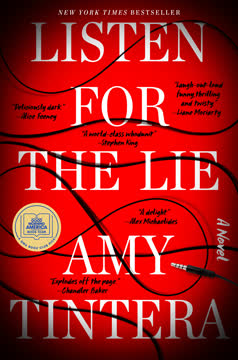

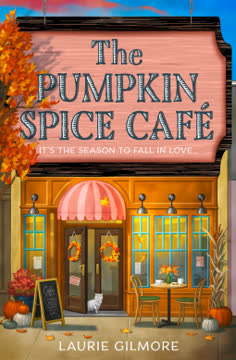
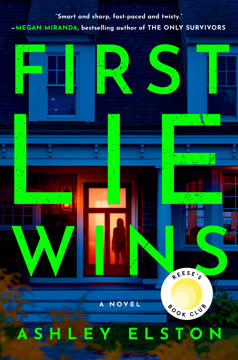




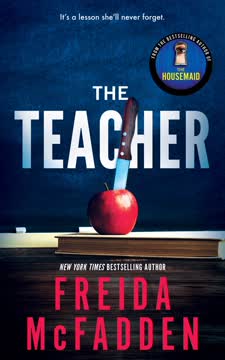
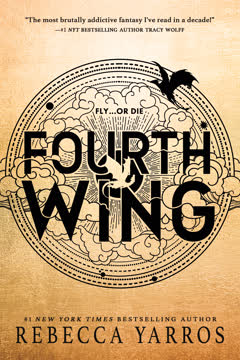
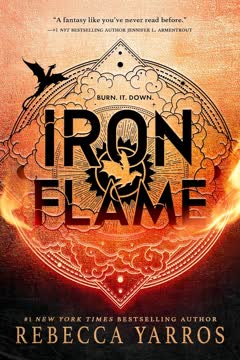
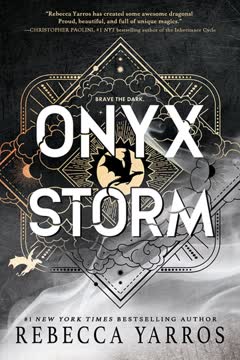

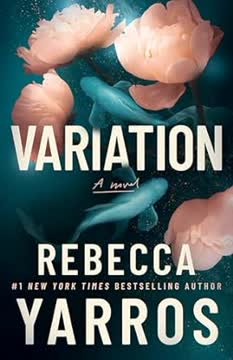
![Onyx Storm (Part 1 of 2) [Dramatized Adaptation] Summary](https://files.sobrief.com/social/cover_onyx-storm-part-1-of-2-dramatized-adaptation_360px_1754722837.jpg)




